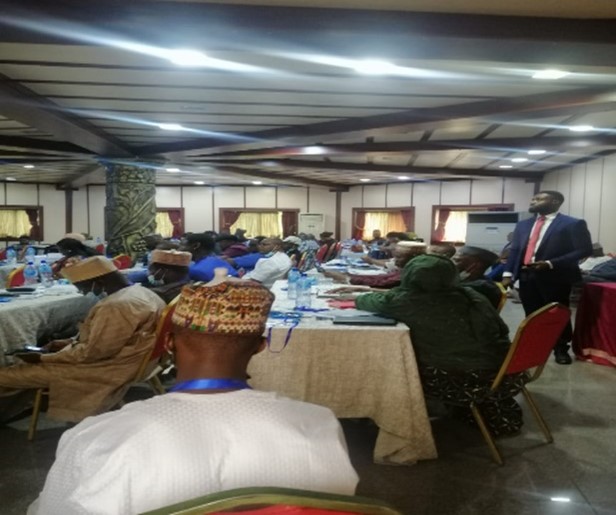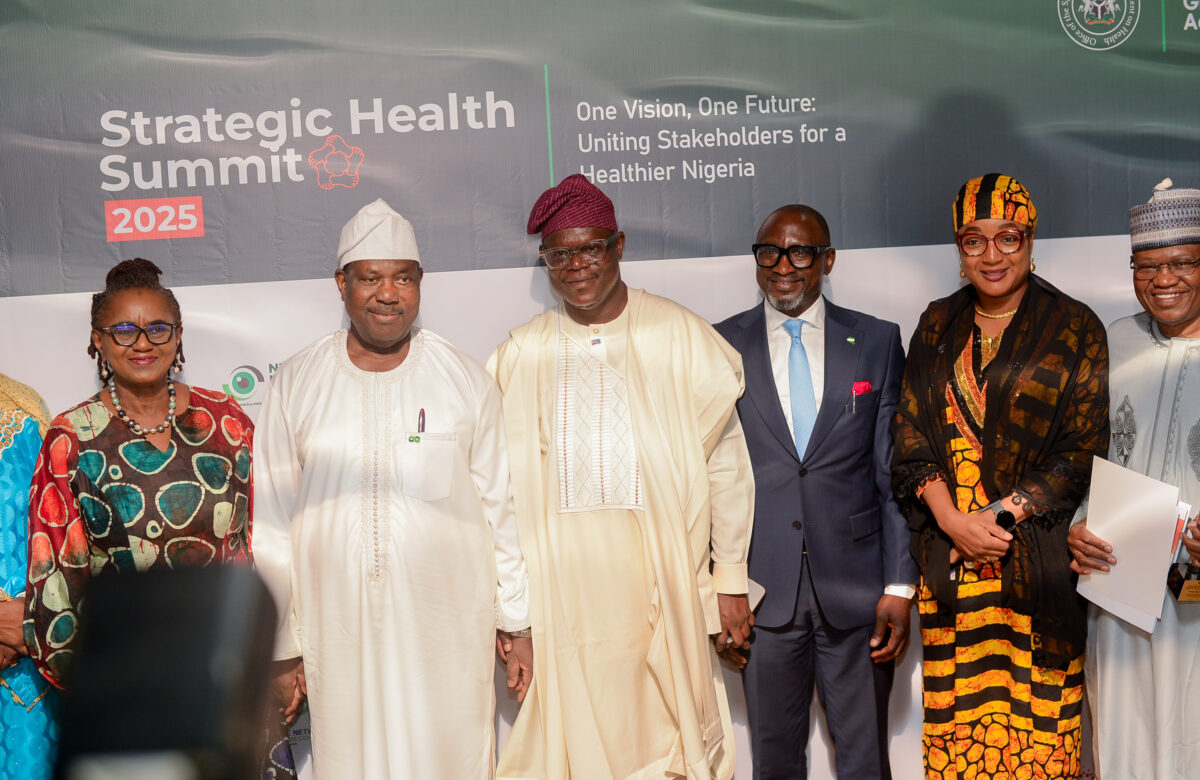
Onboarding And Sensitization Of The State Oversight Committee (SOC) On BHCPF
- BHCPF
- No Comment
- 831
A one-day onboarding and sensitization session for State Oversight Committees (SOC) was organized on the 9th of June 2022, by the BHCPF Ministerial Oversight Committee (MOC) at Chida Hotels Abuja.
All SOC representatives from the 36 States and Federal Capital Territory (FCT) were present at the meeting. They were furnished with BHCPF implementation updates and governance to effectively understand the implementation processes, challenges and attainment of desired results.
The World Bank (WB), World Health Organisation (WHO), Bill and Belinda Gates Foundation (BMGF) and the National Primary Health Care Development Agency (NPHCDA), National Health Insurance Authority (NHIA) and National Emergency Management and Ambulances Services (NEMSAS) Gateways were present at the meeting.
The meeting highlighted that the BHCPF depends on strong collaboration, hence a result focused support of the State and all stakeholders for the implementation of BHCPF towards attaining Universal Health Coverage (UHC) for all Nigerians cannot be over emphasized.
The Minister for Health, Dr Osagie Ehanire in his welcome remarks said that, there is a need for State governments to invest more in primary health care and embrace the laudable intent behind the BHCPF. He therefore called on State governments that have not commenced the implementation of the BHCPF to do so and allow the citizens enjoy its services.
He urged the Honourable Commissioners of Health to draw up their workplans for effective planning and delivery of UHC goals. The Honourable Minister also noted that while the ambulance service is a work in progress and as modalities of operation being established are executed, suggestions and private sector partnership are welcomed, to ensure optimal delivery of the program.
Dr Olumide Okunola, a Senior Health Specialist at the World Bank restated the World Bank’s commitment to the full implementation of the BHCPF, because it considers it a flagship program that will fast-track Nigeria towards achieving its UHC goals amongst other nations. According to Dr Okunola, BHCPF is the first program implementing a nationwide health reform, as not many programs have had a statutory transfer where most of its funds are used at the State level.
An overview of the BHCPF was presented by Dr Chris Isokpunwu, the Director and Secretary of the MOC. He gave a presentation on the establishment of the BHCPF and its most critical objective of ensuring the presence of at least one functional public Primary Health Centre (PHC) in every ward. He noted that 34 States in the country have commenced enrolment of the BHCPF beneficiaries.
He urged the SOCs to take up their responsibilities in ensuring proper accountability and that auditors will commence auditing visits to the State agencies and facilities. He mentioned that the Honourable Minister has approved publication of releases in the national dailies and on other media platforms, whilst regular updates will be provided bi-monthly through the BHCPF Webinar Series.
The program’s next step will be to conduct needs assessment for the States, develop the capacity of the State implementers, develop and deploy appropriate technology for monitoring implementation and to implement the communication strategy to improve uptake of services at the community level amongst others.
The Gateways’ presentations reiterated the commitment of the Federal Government to reduce out-of-pocket expenditure (OOPE) by poor and vulnerable Nigerians. The NHIA urged the State Honourable Commissioners to take the lead in ensuring that their State Gateways work together for the effective and purposeful implementation of the BHCPF. The NHIA representative affirmed that series of retreats are being planned for stakeholders to familiarize themselves with their respective roles.
Dr O. Ogbe, the Program Lead of the NPHCDA Gateway, confirmed that designated PHCs that have met the relevant criteria now have running cost because of the BHCPF. He also informed the Honourable Commissioners of the need to endorse their State’s quarterly business plan which is a prerequisite to receiving and utilizing programmatic funds.
Dr. Sa’idu Ahmed Dumbuluwa, Program Manager NEMSAS noted that the Gateway will be funding and supporting the emergency treatment programs in the States, as well as provide specific training and certification for State Emergency Management Service (EMS) personnel. He noted that the Gateway will assist the States in overcoming the challenges that come with implementation of rural EMS. He indicated that proper and effective implementation of the EMT gateway will no doubt contribute to improved health indices and quality of life over time.
It was emphasized during the meeting that one of the major lessons learnt from BHCPF implementation was that to achieve and close the current implementation gap, States must commit to the 25% statutory contribution of their total allocation.
The following recommendations and next steps evolved from the meeting:
- States need to demonstrate their achievements to make cases for more funding.
- Some States have other health intervention programs, therefore, there is a need to consider integrating these programs to increase reach and reduce or totally eradicate duplication of services.
- There is need to move to an output-based contract in releasing funds for implementation.
- For a holistic approach to solving emerging gaps and issues in the States, Health Finance Technical Officers should be part of subsequent SOC meetings.
- There is a need to explore and include funding to fix emergency rooms of health facilities.
- There is a need to explore a single platform for reporting.
- There will be a follow up on the accountability frameworks currently being developed by the various Gateways to ensure finalization and enable merging into one single framework.
- Conflicting issues around the usage of different registers for enrolment in States is a concern and needs to be presented to the National Social Register for a holistic resolution.
- There is an eminent gap in the funding of CHIPS in States. State governments must be sensitized on the importance of their role and funding. Also, other funding sources need to be explored for sustainable and successful implementation of the BHCPF.
- Several monitoring and oversight visits may distract State offices and health facilities. Monitoring and oversight visits per activity can be reduced by adopting a joint visit of various stakeholders as necessary.
- The next SOC meeting should adequately sensitize the SOC and their teams on their respective roles whilst clarifying issues surrounding BHCPF implementation in their States.
By Jamila Mohammed-Jantabo | LISDEL-BHCPF



